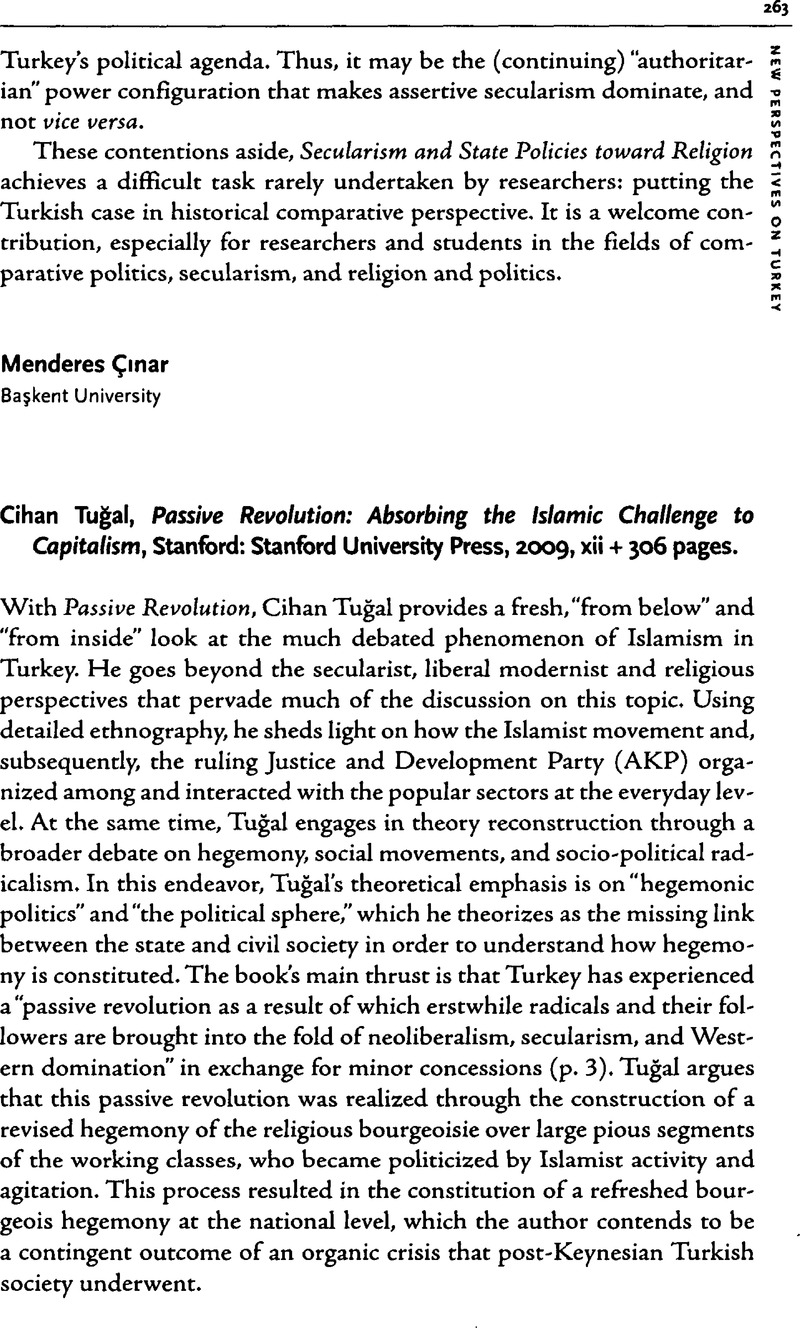No CrossRef data available.
Published online by Cambridge University Press: 21 July 2015

1 For a similar perspective that comes from within the Islamist movement, see Bekaroğlu, Mehmet, Siyasetin Sonu (Ankara: Elips Kitap, 2007)Google Scholar, and Erkilet-Başer, Alev, Eleştirellikten Uyuma (Ankara: Hece Yayınları, 2004)Google Scholar. For a recent work that argues that the movement has undergone a healthy evolution, see Yavuz, Hakan, Secularism and Muslim Democracy in Turkey (Cambridge: Cambridge University Press, 2009)CrossRefGoogle Scholar.
2 This part of the book mostly draws on Tuğal's dissertation. See Tuğal, Cihan, “Islamism among the Urban Poor of Turkey: Religion, Space, and Class in Everyday Political Interaction” (Unpublished Dissertation, The University of Michigan, 2003)Google Scholar.
3 For an ethnographic study on Islamism among the working classes, see (enny White, , Islamist Mobilization in Turkey (Washington: Washington University Press, 2002)Google Scholar. For an ethnographic study of Islamism focusing on the middle class, see Saktanber, Ayşe, Living Islam: Women, Religion and the Politicization of Culture in Turkey (London: I.B. Tauris, 2002)Google Scholar.